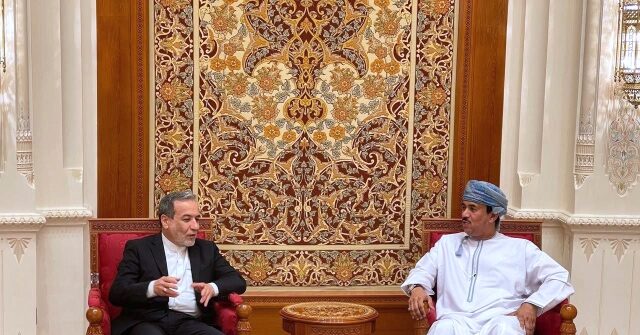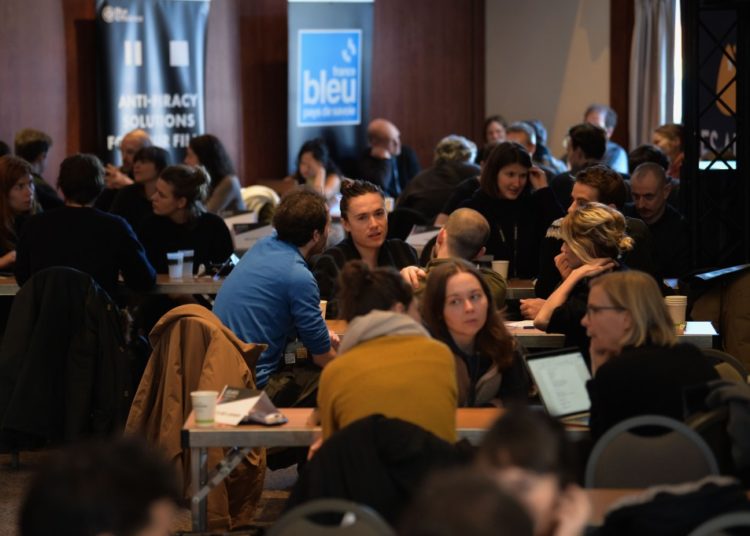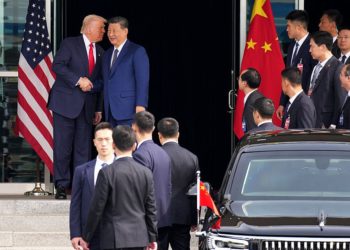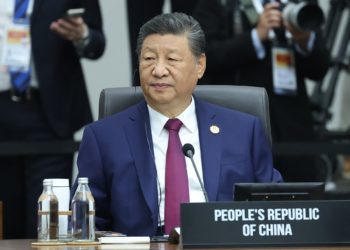The non-profit Institute for Science and International Security (ISIS) reported that Iran was fortifying its underground nuclear complexes ahead of this weekend’s third round of nuclear negotiations with the Trump administration.
Iran insists it will not comply with the administration’s demand for it to suspend all uranium enrichment. President Donald Trump said military action could be imminent if Iran does make a deal.
ISIS said satellite imagery showed Iran building a security perimeter around Mt. Kolang Gaz La, a mountain that sits atop two large underground tunnel complexes linked to the nearby Natanz nuclear facility. The massive security perimeter, which includes road grading and wall panels, isolates a sizable chunk of the mountain to limit access to the tunnel complex entrances. The north side of the new perimeter joins up with the existing barriers around the Natanz facility.
ISIS noted the new perimeter was not easy to build, given the mountainous terrain. The wall appears to be supported by a network of trenches that could hold wiring for communications, camera surveillance, and light poles.
The tunnel complexes are probably not fully operational yet, although ISIS conceded it was difficult to tell based on satellite photos. One of the tunnels was originally built in 2007, remained inert from 2010 to 2020, and was then reactivated five years ago. The other one was built to replace an underground uranium centrifuge assembly plant that was destroyed in a 2020 explosion.
ISIS noted that Iran has not allowed the International Atomic Energy Agency (IAEA), the U.N. nuclear watchdog, to visit either tunnel complex since 2007.
IAEA Director Rafael Grossi on Thursday asked Iran to clarify the purpose of the tunnels and explain the construction of the new security perimeter. He said Iran’s reply was, “It’s none of your business.”
Grossi expressed support for Trump administration envoy Steve Witkoff and said he was optimistic Iran could make a deal. But on Wednesday, Secretary of State Marco Rubio repeated the administration’s position that Iran must suspend all uranium enrichment.
“If Iran wants a civil nuclear program, they can have one just like many other countries can have one, and that is they import enriched material,” Rubio said. Such an arrangement is commonplace for countries that have legitimate need for below-weapons-grade nuclear material.
“The core issue of enrichment itself is not negotiable,” Iranian Foreign Minister Abbas Araghchi responded.
Iran’s delegation arrived in Muscat, Oman, on Friday for a third round of nuclear negotiations on Saturday, following talks in Italy and Oman that both sides described as productive. This weekend’s discussion is supposed to be more “technical” in nature.
Iran’s delegation includes Kazem Gharibabadi, who was involved in unsuccessful talks with the Biden administration to revive former President Barack Obama’s 2015 nuclear deal. The U.S. technical team will be led by Michael Anton, recently appointed by President Donald Trump as head of policy planning at the State Department.
Iranian Supreme Leader Ayatollah Ali Khamenei, who previously scoffed at the notion of negotiating with the Trump administration, appears to be preparing his people for accepting some sort of nuclear bargain, while chastising hardline elements of his government for their implacable resistance to striking a deal.
Iranian Foreign Minister Abbas Araghchi reportedly told Witkoff last week that a comprehensive deal within the 60-day time frame envisioned by President Trump could be difficult to achieve but an interim deal was possible. The Iranian mission to the United Nations denied the accuracy of this report, while the U.S. State Department refused to comment.
The post Report: Iran Fortifies Nuclear Sites, Refuses U.S. Demand to Halt Uranium Enrichment appeared first on Breitbart.




